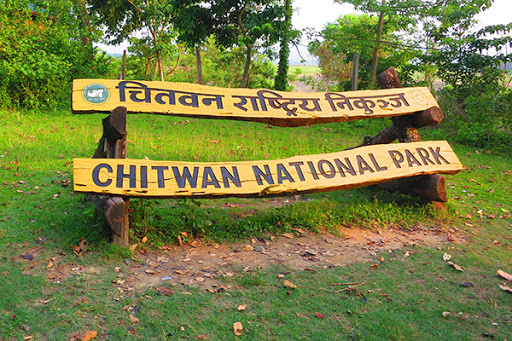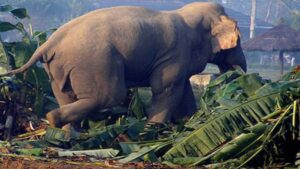
Chitwan, May 19: The wild animals inhabiting Chitwan National Park (CNP) are facing problem after the water sources have started drying up due to the drought.
CNP Information Officer Ganesh Prasad Tiwari said that the water level in the 134 big and small lakes and ponds inside the Park has started to recede fast due to the dry spell, putting the wild animals in trouble.
According to him, the water level of the wetland, rivers and streams as well as of the natural water bodies and those of the man-made ponds inside the CNP has drastically decreased compared to the same period of last year.
CNP Chief Conservation Officer Dil Bahadur Purja Pun said the water level I the lakes and ponds has fallen since there is no precipitation for long. There is high water evaporation from the water bodies due to the scorching sun and there is no rain to replenish it.
“It is estimated that the water level has dropped compared to the last few years. This is because there was less rainfall during the winter this year. The wild animals have been directly hit due to this condition,” he added.
The rare one-horned rhino likes to wallow in the ponds during the summer. Other animals also direly need water. However, the old ponds and wetlands here are not managed accordingly for that purpose.
However, the CNP Office has stated that they are facing problem to carry out cleaning up and management works of water sources like removing the debris due to the paucity of funds.
“In the fiscal year 2075/76 BS, Rs 14.5 million was earmarked for managing the water sources inside the Park. We had carried out works related to managing 60 ponds that year. That fund has reduced to just Rs 2.5 million this fiscal year 2080/81, which means it is not adequate to carry out cleaning and other management works,” the Conservation Officer said.
According to him, only seven ponds have been managed from the available funds this year. This means there is increased risk of human-wildlife conflict this year as the wild animals are likely to stray into human settlements.














